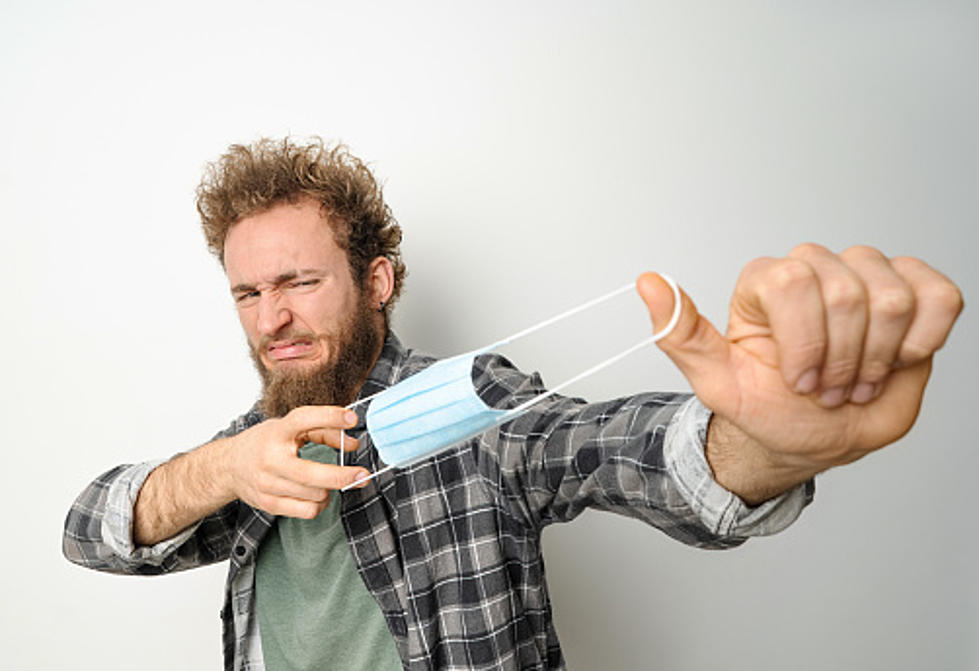
Here’s Illinois’ Essential Businesses List
The order began at 5 p.m. Saturday and will go until April 7. Like other states, the order will mean residents can still go to the grocery stores, put gas in their cars, take walks outside and make pharmacy runs.
But, what else qualifies as an essential business?
Here's a rundown, from The News Gazette:
The list of businesses and organizations that will be allowed to remain open under the terms of Gov. J.B. Pritzker’s stay-at-home order is far lengthier than the ones that shut down effective 5 p.m. Saturday.
CAN STAY OPEN
— Healthcare and public health operations, including hospitals, clinics, dental offices, pharmacies, licensed medical cannabis dispensaries, licensed cannabis cultivation centers, reproductive health care providers, eye care centers, home healthcare services providers, mental health and substance use providers and entities that transport and dispose of medical materials and remains.
— Only certain day care centers. According to an item in the FAQ section of the order: "If you are considered an essential worker under the Order, you can take your child to a day care that is licensed on an emergency basis for the purpose of childcare for essential workers. Licensed day care homes for up to 12 children will be closed but may reopen as an unlicensed day care home for up to 6 children."
— Stores that sell groceries and medicine, including grocery stores, pharmacies, certified farmers’ markets, farm and produce stands, supermarkets and convenience stores.
— Organizations that provide charitable and social services, including food banks, businesses, and religious and secular nonprofits.
— Restaurants and other facilities that serve food but only for consumption off-premises, via in-house delivery, third-party delivery, drive-through, curbside pick-up or carry-out.
— Media, including newspapers and radio and TV stations.
— Gas stations and businesses needed for transportation, including auto supply, auto repair and bicycle shops.
— Financial institutions, including banks, currency exchanges and consumer lenders. The latter group includes payday lenders, pawnbrokers, consumer installment/sales finance lenders, credit unions, appraisers, title companies, financial markets, trading/futures exchanges, affiliates of financial institutions, entities that issue bonds, related financial institutions, and institutions selling financial products.
— Hardware stores and businesses that sell electrical, plumbing and heating material.
— Transportation, for the purposes of essential travel. That covers public transportation, including the Champaign-Urbana Mass Transit District, as well as airlines, taxis, network providers such as Uber and Lyft and vehicle rental services.
— Critical trades, including plumbers, electricians, exterminators, cleaning and janitorial staff for commercial and governmental properties, security staff, operating engineers, HVAC, painting, moving and relocation services.
— Mail, post, shipping, logistics, delivery and pick-up services, and businesses that ship or deliver groceries, food, alcoholic or non-alcoholic beverages, goods or services.
— Food and beverage manufacturing, production, processing and cultivation, including farming, livestock, fishing, baking and other production.
— Agriculture, including cultivation, marketing, production and distribution of animals and goods for consumption.
— Educational institutions for the purposes of facilitating distance learning, performing critical research or performing essential functions.
— Businesses that provide food, shelter and other necessities of life for animals, including animal shelters, rescues, kennels and adoption facilities.
— Laundromats, dry cleaners, industrial laundry services and laundry service providers.
— Businesses that sell, manufacture or supply products that are essential for people to work from home or for essential businesses and operations.
— Home-based care and services for adults, seniors, children and/or people with developmental disabilities, intellectual disabilities, substance use disorders and/or mental illness.
— Residential facilities and shelters for the same group listed above.
— Professional services, including legal, accounting, insurance and real estate services.
— Manufacturing companies, distributors and supply chain companies producing and supplying essential products and services in and for industries such as pharmaceutical, technology, biotechnology, healthcare, chemicals, sanitization, waste pickup/disposal, agriculture, food/beverage, transportation, energy, steel, petroleum/fuel, mining, construction, national defense and communications.
— Labor union essential activities, including the administration of health and welfare funds.
— Hotels and motels, to the extent that they’re used for lodging and delivery or carry-out food services.
— Funeral, mortuary, cremation, burial, cemetery and related services.
CAN’T STAY OPEN
— Schools. The statewide shutdown was extended to April 7 on Friday.
However, schools and other entities that typically provide food services to students or members of the public may continue to do so on the condition that the food is provided to students or members of the public on a pick-up and takeaway basis only.
— All places of public amusement, whether indoors or outdoors, including locations with amusement rides, carnivals, amusement parks, water parks, aquariums, zoos, museums, arcades, fairs, children’s play centers, playgrounds, funplexes, theme parks, bowling alleys, movie and other theaters, concert and music halls, and country clubs or social clubs.
— Fitness and exercise gyms and spas.
The governor's order notes: "Outdoor exercise like running or taking a walk is perfectly acceptable; however, exercise gyms, fitness centers and associated facilities will be closed to reduce the spread of coronavirus. While exercising outside, you should still practice social distancing by running or walking at least six feet away from other people."
— Salons, barber shops, tattoo parlors and similar facilities.
More From WROK 1440 AM / 96.1 FM









